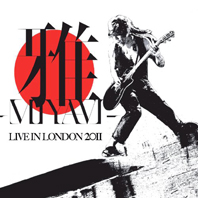Lesson 9: Socializing
Expressions
| Asking to get together |
||
|---|---|---|
| Why don't we eat out together some time? | Kondo, issho ni shokuji ni iki masenka? | |
| Yes, I'd like to go. | Hai, iki taidesu. | |
| Why don't we watch DVD together tonight? | Konban, issho ni DVD o mi masenka? | |
| Yes, sounds good. | Hai, iidesune. | |
| Why don't we go out together tomorrow? | Ashita, issho ni dekake masenka? | |
| Some other time. | Mata kondo. | |
| PLEASE, come to the party. | Zehi, pāthii ni kite kudasai. | |
| Yes, with pleasure. | Hai, yorokonde. | |
| Let's play a game. | Gēmu o shi mashō. | |
| I'm a little busy. | Chotto isogashii desu. | |
kondo: some time in the near future, at the next chance issho ni: together shokuji: having meal _masenka?: Why don't we_? _mashō: Let's _. Iidesune.: Sounds good. miru: to watch, to look, to see dekakeru: to go out Mata kondo.: Maybe, some other time. (Used often as indirect refusal.) zehi: Used to emphasize your willingness. Yorokonde.: With pleasure. (positive acceptance) chotto: little (sounds more casual than "sukoshi") isogashii: busy |
||
Basic Rules verb + masenka? = Why don't we _? Literally, it seems to mean "Don't you _?". But mostly, this sentence form is used to invite someone. Examples: tabe masenka?: Why don't we eat?, nomi masenka?: Why don't we drink (go for a drink)?, tenisu o shi masenka?: Why don't we play tennis? verb + mashō = Let's _. It is also used to invite someone, but sounds more stronger than "_masenka?". Use this sentence pattern when you are almost sure that the person also wants to do it. Examples: tabe mashō: Let's eat, nomi mashō: Let's drink (go for a drink), tenisu o shi mashō: Let's play tennis. |
||
| Making an appointment |
||
|---|---|---|
| When would be good? | Itsu ga ii desuka? | |
| How about this Saturday? | Konshū no Doyō wa dō desuka? | |
| Saturday is not good. | Doyōbi wa tsugō ga warui desu. |
|
| Then, how about Sunday? | Dewa, Nichiyō wa dō desuka? | |
| All right. | Daijōbu desu. | |
| Then, let's meet here at 2pm. | Dewa, gogo ni-ji ni kokode ai mashō. | |
ii: good, fine warui: bad dō: how? tsugō ga ii: convenient, suit one's schedule, can make it tsugō ga warui: inconvenient, not suit one's schedule, can't make it dewa: then kokode: at this place (koko: here + de: at) au: to meet |
||
| Exchanging contact information |
||
|---|---|---|
| Can you tell me (your) phone number? | Denwabangō o oshiete moraemasuka? | |
| Do you have a cell phone? | Keitai o motte imasuka? | |
| Can you enter (input) the mail address here? | Mēru adoresu o koko ni irete moraemasuka? | |
| I'll send my address by e-mail later. | Ato de watashi no jushō o mēru de okuri masu. | |
denwabangō: phone number (denwa: phone + bangō: number) keitai: cell phone, mobile phone mēru adoresu: mail address ireru: enter, input atode: at later time jūsho: address okuru: to send |
||
Basic Rules verb + te (tte) + imasu = continuous state This present progressive sentence form can also mean the continuous state. Examples: keitai o mot te imasu (I own a cell phone. It doesn't mean that "I am holding it at this moment."), kare o shitte imasu. (I know him. Does not mean that "I'm getting to know him now.") |
||
| Eating out |
||
|---|---|---|
| Why don't we eat something? | Nanika tabe masenka? | |
| What do you want to eat? | Nani o tabe tai desuka? | |
| How about Italian food? | Itaria ryōri wa dō desuka? | |
| Why don't we drink beer? | Biiru o nomi masenka? | |
| Sounds good. | Ii desune. | |
| No, I don't drink alcohol. | Iie, watashi wa osake o nomi masen. | |
| Cheers! | Kanpai! | |
| It's my treat, today. | Kyō wa gochisō shimasu. | |
| Let's split the bill. | Warikan ni shi mashō. | |
| Thank you for the treat. | Gochisōsama deshita. | |
nanika: something, anything itaria: Italy / itaria ryori: Itarian food, dishes, cuisine biiru: beer taberu: to eat ii desune: Sounds good. osake: alcoholic drinks kanpai!: Cheers! gochisō suru: treat the meal (pay for the meal) warikan: separating the bill (paying separately) gochisōsamadeshita: Greeting when you finished the meal. Also can be used to thank someone who treated you a meal. |
||
| About language skills |
||
|---|---|---|
| Can you read (display) the Japanese characters on your computer? | Anata no konpyutā de Nihongo no moji o yome masuka? | |
| Probably OK. | Tabun, daijōbu desu. | |
| No, not possible. | Iie, muri desu. | |
| Can you write Kanji letters? | Kanji o kake masuka? | |
| I can write Hiragana and Katakana only. | Hiragana to Katakana dake kake masu. | |
| Can you speak English? | Eigo o hanase masuka? | |
| I can speak just a little. | Sukoshi dake hanase masu. | |
|
moji: letters, characters tabun: probably muri: not possible, can't make it dake: only yomu: to read kaku: to write hanasu: to speak |
||
Basic Rules verb (e) + masu = be able to _ Change the end vowel of the verb from "i (desu, masu form)" to "e". Examples: yomi masu (I read) / yome masu (I can read) / yome masen (I can't read), iki masu (I go) / ike masu (I can go) / ike masen (I can't go). |
||
| Asking the reason |
||
|---|---|---|
| Oh, I have to go home. | A, mō, kaera nakutewa ikemasen. | |
| Why? | Naze desuka? | |
| Because, I'll go out tomorrow morning at 6. | Ashita, asa roku-ji ni dekakeru karadesu. | |
| Oh, I see. | Ā, sō desuka. | |
kaeru: to go back naze?: why? dekakeru: to go out sō desuka: I see. |
||
Basic Rules verb (a) + nakutewa ikemasen = have to _ Change the end vowel of the verb from "i (desu, masu form)" to "a" and add "nakutewa ikemasen". Examples: kaeri masu (I go back) / kaera nakutewa ikemasen (I have to go back), hanashi masu (I speak) / hanasa nakutewa ikemasen (I have to speak). verb (u) + karadesu = Bacause _. (Explaining the reason why) Change the end vowel of the verb from "i (desu, masu form)" to "u (dictionary form)" and add "karadesu". Examples: kaeri masu (I go back) / kaeru karadesu (Because I go back), kai masu (I buy) / kau karadesu (Because I buy) |
||
| Giving a present |
||
|---|---|---|
| Happy birthday! | Tanjōbi omedetō gozaimasu. | |
| Here, a present for you. | Kore, purezento desu. | |
| Here, a souvenir from Thailand. | Kore, Tai no omiyage desu. | |
| Can I open? | Ake temo ii desuka? | |
| Can I share with my family? | Kazoku to wake temo ii desuka? | |
| Yes, please. | Ē, dōzo. | |
| Wow, beautiful! | Wā, kirei! | |
| Wow, great! | Wā, sugoi! | |
| Wow, cute! | Wā, kawaii! | |
| Wow, looks delicious! | Wā, oishisō! | |
|
tanjōbi: birthday omedetō gozaimasu: Congratulations! Tai: Thailand omiyage: souvenir akeru: to open wakeru: to share ē: yes (sounds more casual) wā: wow! Used when you are surprised. kirei: beautiful sugoi: great, amazing kawaii: cute, pretty Young girls use this often. oishisō: looks delicious |
||
Basic Rules verb + temo iidesuka = May I _? Examples: ake masu (I open) / ake temo iidesuka? (May I open?), tabe masu (I eat) / tabe temo iidesuka? (May I eat?), |
||
| Farewell | ||
|---|---|---|
| Thank you for taking care of me so nicely. | Osewa ni nari mashita. | |
| PLEASE stay my house when you come to Russia. | Rosia ni ki tara, zehi, watashi no ie ni tomatte kudasai. | |
| Please contact me when you arrive in Bangkok. | Bankoku ni tsui tara renraku shite kudasai. | |
| Please come to visit us again, any time. | Mata, itsudemo asobi ni kite kudasai. | |
| I really appreciate that. | Hontō ni arigatō gozaimashita. | |
| So, see you again. Good-bye. | Dewa, mata aimashō. Sayōnara. | |
|
osewa ni narimashita: Used to thank for the hospitality Rosia: Russia kuru: to come ie: house tomaru: to stay Bankoku: Bangkok tsuku: to arrive renraku suru: to contact, to get in touch itsudemo: any time asobi ni kuru: come to visit, come to play asobi ni iku: go to visit, go to play honto ni: truly, really |
||
Basic Rules verb + tara = when _, if _ Examples: Kare ga ki masu (He comes) / Kare ga ki tara (When he comes, If he comes), tabe masu (I eat) / tabe tara (When I eat, If I eat). |
||











